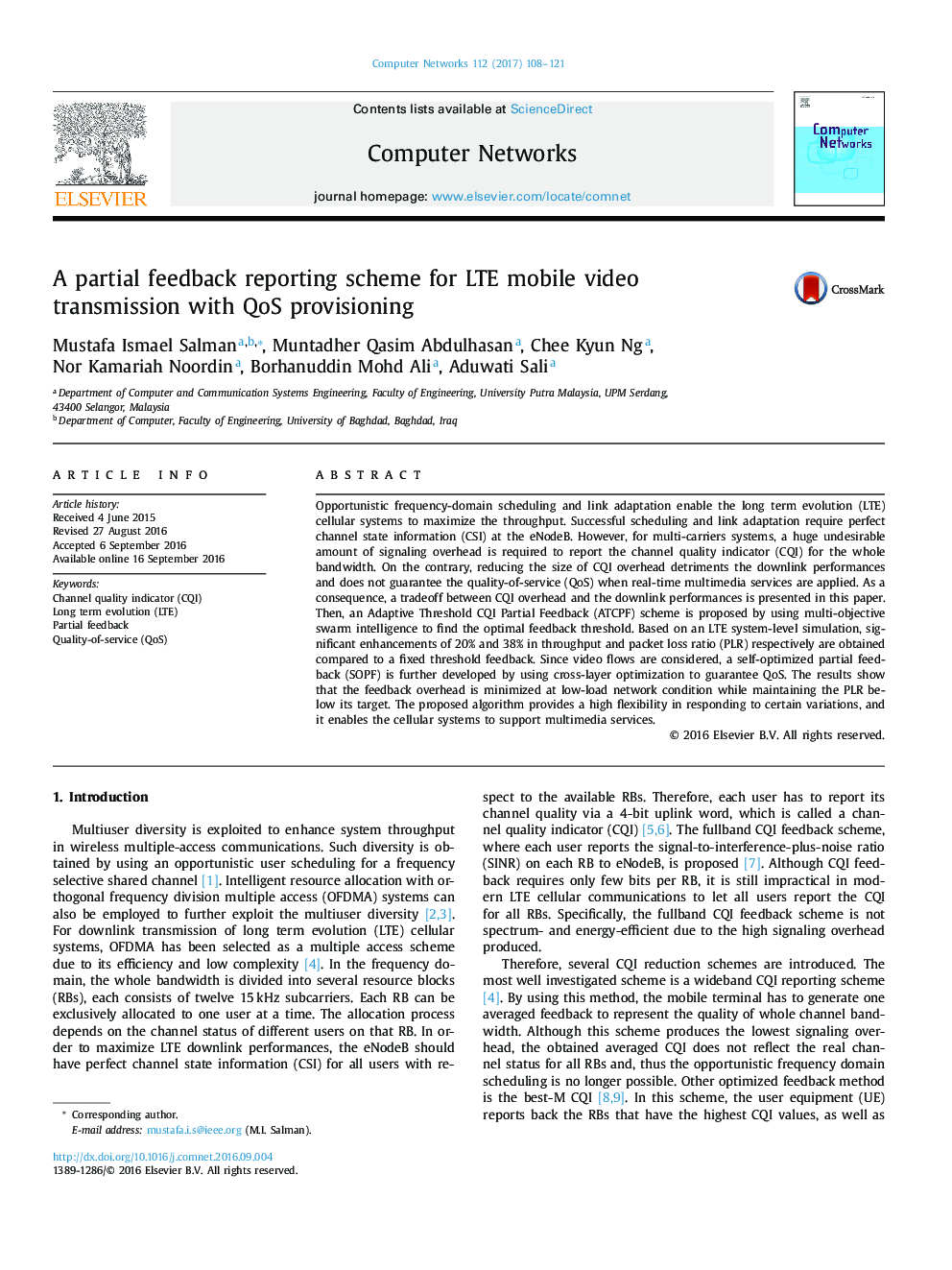| Article ID | Journal | Published Year | Pages | File Type |
|---|---|---|---|---|
| 4954846 | Computer Networks | 2017 | 14 Pages |
Opportunistic frequency-domain scheduling and link adaptation enable the long term evolution (LTE) cellular systems to maximize the throughput. Successful scheduling and link adaptation require perfect channel state information (CSI) at the eNodeB. However, for multi-carriers systems, a huge undesirable amount of signaling overhead is required to report the channel quality indicator (CQI) for the whole bandwidth. On the contrary, reducing the size of CQI overhead detriments the downlink performances and does not guarantee the quality-of-service (QoS) when real-time multimedia services are applied. As a consequence, a tradeoff between CQI overhead and the downlink performances is presented in this paper. Then, an Adaptive Threshold CQI Partial Feedback (ATCPF) scheme is proposed by using multi-objective swarm intelligence to find the optimal feedback threshold. Based on an LTE system-level simulation, significant enhancements of 20% and 38% in throughput and packet loss ratio (PLR) respectively are obtained compared to a fixed threshold feedback. Since video flows are considered, a self-optimized partial feedback (SOPF) is further developed by using cross-layer optimization to guarantee QoS. The results show that the feedback overhead is minimized at low-load network condition while maintaining the PLR below its target. The proposed algorithm provides a high flexibility in responding to certain variations, and it enables the cellular systems to support multimedia services.
